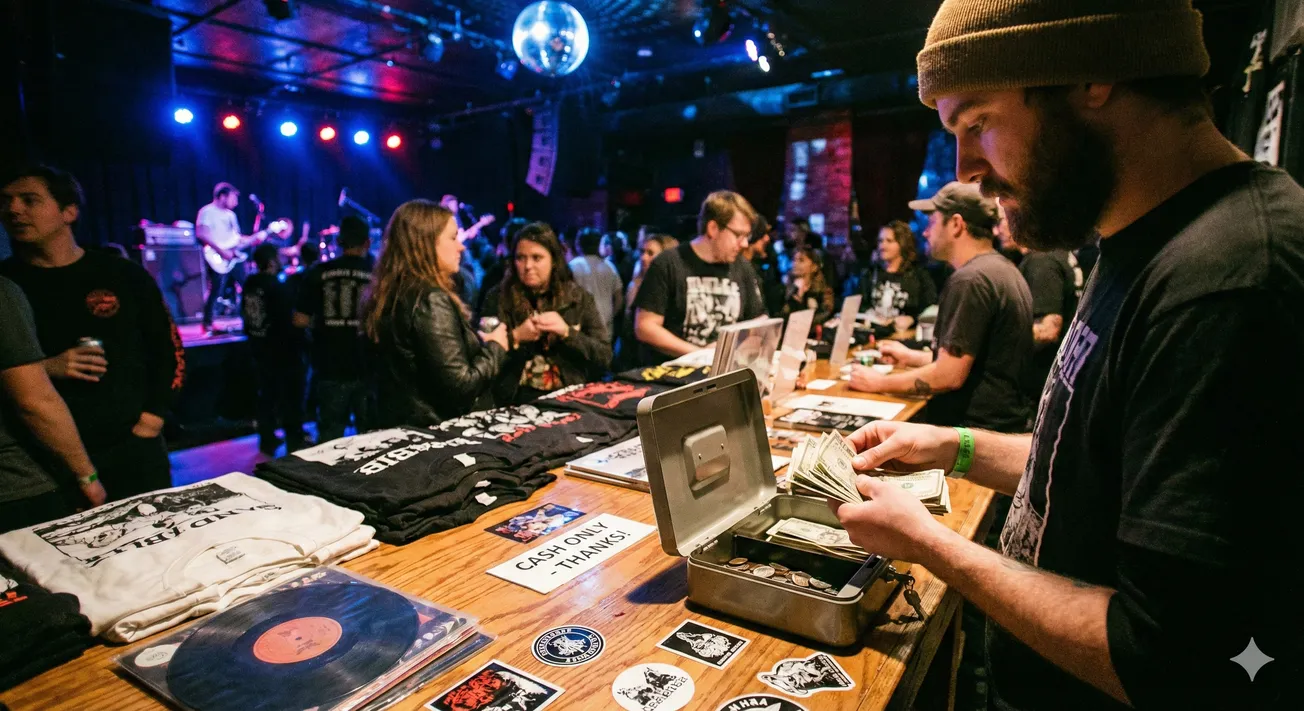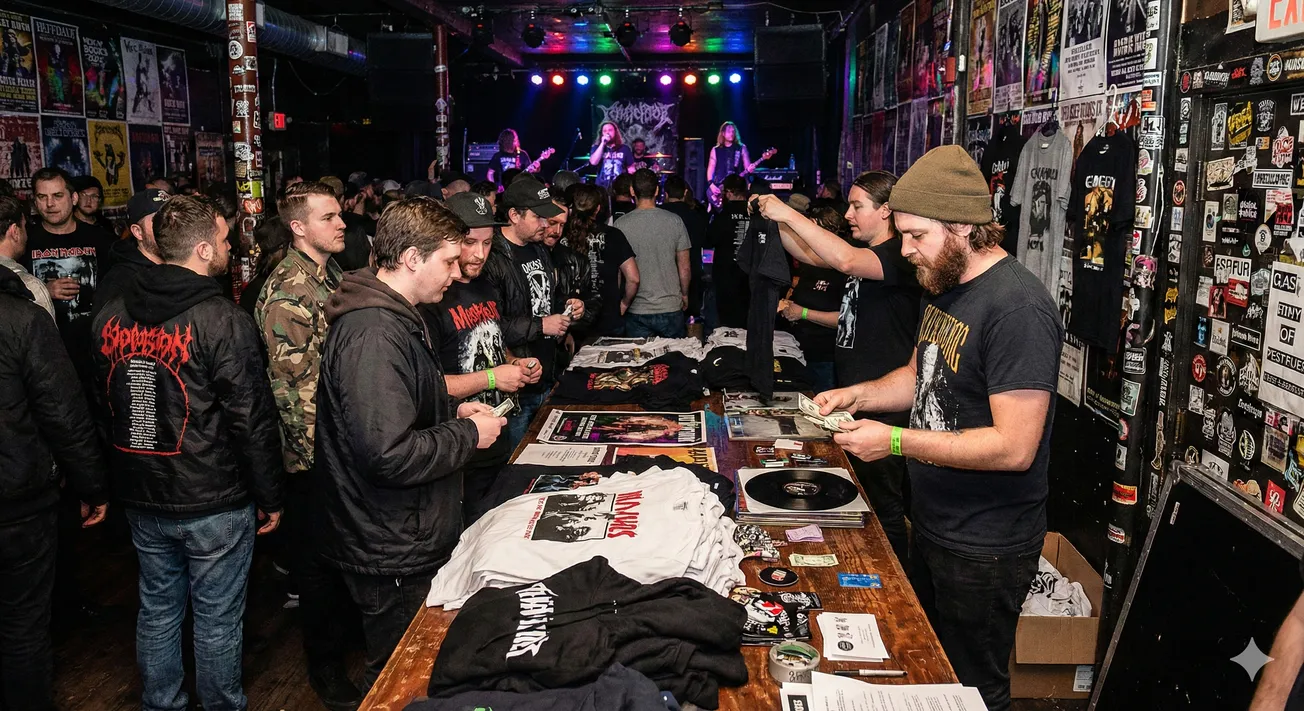Industry consultant Bobby Borg sits down to chat with Freddy Nager, former label exec, professor, and owner of Atomic Tango about the elusive but ever-sought after word-of-mouth marketing, and what bands and artists can do to cultivate it.
Guest post by Bobby Borg of the Disc Makers Blog
Musician, author, educator, and music industry consultant Bobby Borg talks to Freddy Nager, a former label executive, professor at USC, and owner of Atomic Tango to talk about word-of-mouth marketing and how to leverage it to boost your music career.
Excerpted from the video, “How to Create a Massive Buzz About your Music!”
Bobby Borg: Before we get started, I’m going to put things into perspective and refer to a book called The Tipping Point by Malcolm Gladwell. It’s been out for a while, but it’s still very relevant, and the way Gladwell defines word-of-mouth marketing is, “the process of stimulating natural conversation or buzz about your products or services.”
In a crowded marketplace like the music market, it’s not enough just to push out messages and hope they’re successful — you have to get people to talk about and enthusiastically recommend your products. Some ways to do this are through influencers, by sparking controversy, and through “mystery and intrigue.” So let’s talk about identifying influencers.
Freddy, can you define what influencers are and then describe how we can get them to talk about our products and services?
Freddy Nager: Sure. The first point I want to make is that the word “influencers” is one of the most overused words in marketing. Nowadays, it’s used loosely to refer to social media stars, but not every social media star is an influencer and not every influencer is a social media star. An influencer, by definition, is somebody who changes someone else’s thinking or behavior. So, if your social media star simply looks good and likes to pose with products, but they don’t change people’s minds or get people to do anything, they’re not an influencer, they’re a model. There’s nothing wrong with models — models have helped brands for ages, but they’re not influencers.
You need to go out there and look at social media, but there are a lot more options for promoting music. For example, when I was working in the music industry, we called them “taste-makers,” we didn’t use the term “influencers” back then. They were taste-makers or trendsetters and, in certain neighborhoods, some of the biggest taste-makers when it came to music were people who ran beauty parlors and barber shops. People go in there, the music’s playing in the background, and they’re sitting there getting their hair done and they’d say, “Who is that? It sounds fantastic.” And the barbershop owner or the beautician would say, “That’s the new Heavy D album.” And word spread. That’s influence. This is somebody who’s not a celebrity, they just run the local shop. The same could be true of the most popular Uber driver in the neighborhood. Get them your latest album. When passengers get in and like what they’re hearing, maybe that’ll get you some local attention. We need to get a little more creative when we identify who we call an influencer, because a lot of people that we say are influences really aren’t.
Bobby Borg: For the second part of that question, how do we get these influencers to start talking about us? Do we just seed our products and services? Give out free samples to them? Approach them and just simply ask them if they’d be willing to promote us?
Freddy Nager: Well, that’s all possible but I always tell people to network before you need it. Before you go out there and ask favors of people, get to know them. If you go to your local bartender and say, “please play this music at the bar, it’s royalty free — just play my album,” you don’t want him to say, “who the hell are you?” Right? You want him to be able to say, “Hey, Bobby, you’ve been telling me about this album you’ve been working on. Yeah, I’ll give it a spin.”

Get to know people before you start asking for favors. That’s why networking is so important. Networking isn’t going to a party and trying to make sales there and then. It’s about getting to know people and what they care about. Networking is listening, so when you are ready, you have this relationship with the local music journalist, with the local club promoter, with the local bartender. You can’t be a stranger asking for favors. Once you’ve established these relationships and you’re ready, absolutely have your samples available. Make people feel important. Everyone wants to be the one who’s made the discovery, right? Everyone wants to be that person who says, “I was the first one who played that album.” Nobody wants to be the 31st person to hear the album.
Bobby Borg: That’s awesome advice. So, let’s move on to part two: using controversy to get attention. So, someone like Kanye West, lots of people feel he’s a genius, he does things and gets people to talk about him and he stays in the news cycle because he does controversial things, like refers to himself as god and grabs the mic out of Taylor Swift’s hand. But, we have to be careful, because all press is not good press. So, when is using controversy useful and when is it harmful?
Freddy Nager: Well, controversy can be very effective, but it has to be the right kind of controversy. Now, Kanye can get away with what he’s doing because he’s established, he’s incredibly wealthy, and he has an army of lawyers who can get him out of trouble at any time. Most musicians don’t have any of the above, so if you go out there and you try to cause trouble, it can really backfire. There were some musicians a few years back here in L.A. who blocked traffic and tried to do a concert off the back of a truck. Yes, that got them a lot of press coverage, but it also got them an appearance before a judge. That really didn’t enhance their career that much.
Music and controversy go together because young people look to musicians for expression. A lot of young people have pent-up emotions, and musicians express those emotions for them, right? So a little rebellion, like how Miley Cyrus acts a little “crazy,” works because it resonates with her audience — young women who want to be as crazy as she but can’t. But the key thing is, her controversy relates back to her music, and that’s the kind of controversy I endorse. When you’re out there just breaking the law, yes, you’ll get you attention, but what does that have to do with your music?
Let the music do the talking for you. Let your stage performance do the talking for you. Is your stage performance a little out there? Unusual? Different? That’s the kind of controversy you want. That’s the word-of-mouth marketing you want. You want people saying, “Have you heard this song? Have you checked out this album?” As opposed to, “Did you hear what so-and-so did? Oh god, what an idiot. He’s in jail.” That’s not the controversy you want. It’s actually fairly easy to stir up controversy. All you need to do is express a strong, sincere opinion that you hold
Bobby Borg: I think the key word there is sincere. It can’t be fake.
Want more music career advice? Don’t just read it… watch the videos on Bobby Borg’s YouTube channel.
Bobby Borg is the author of Music Marketing For The DIY Musician (Second Edition), Business Basics For Musicians (Second Edition), and The Five Star Music Makeover (published by Hal Leonard Books). Get these books at any fine online store in both physical or digital format. Learn more at www.bobbyborg.com.





